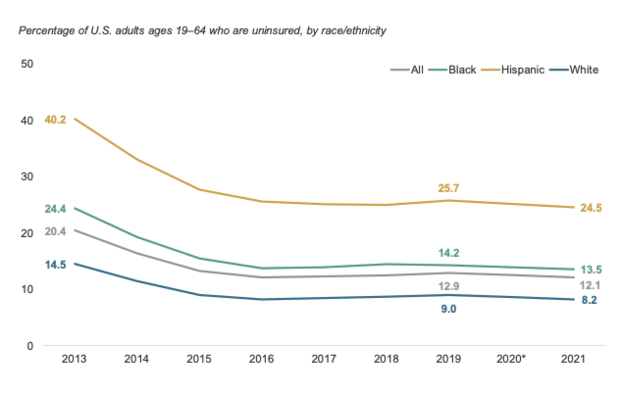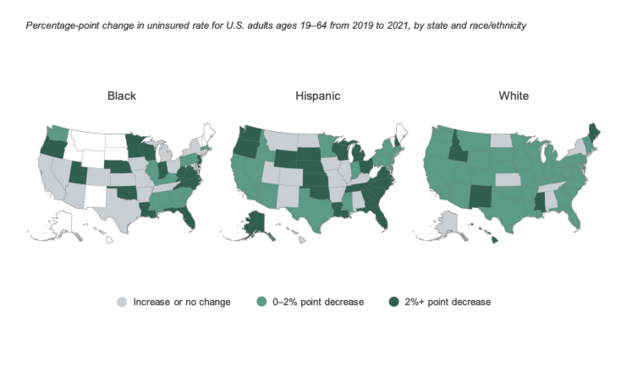The Affordable Care Act, passed in 2010 by former President Barack Obama, has expanded health insurance coverage across the U.S. and significantly reduced racial and ethnic disparities in access to healthcare, according to a new report by the Commonwealth Fund.
The Commonwealth Fund
“Since its passage in 2010, the Affordable Care Act (ACA) has helped cut the U.S. uninsured rate nearly in half while significantly reducing racial and ethnic disparities in both insurance coverage and access to care — particularly in states that expanded their Medicaid programs,” reads the report.
Data shows that prior to the 2013 implementation of the Medicaid expansion — a provision of the ACA that made more families eligible for Medicaid coverage — 40.2% of the Hispanic population, 24.4% of the Black population, and 14.5% of the White population were uninsured in America. However, by 2021, those numbers dropped significantly to 24.5%, 13.5%, and 8.2%, respectively.
The Commonwealth Fund
With more than five million people gaining coverage between 2020 and 2022 over the course of the pandemic, the overall uninsured rate in the U.S. dropped to just 8%, a historic low, according to the report.
The report highlights specific ACA successes, including improved coverage rates for Black, Hispanic and White adults.
“The coverage gap between Black and White adults dropped from 9.9 to 5.3 percentage points, while the gap between Hispanic and White adults dropped from 25.7 to 16.3 points,” according to the the study.
Additionally, the report found that adult uninsured rates for Black, Hispanic, and White people all improved during the first two years of the pandemic across all states — whether they had expanded their Medicare coverage or not — and that Black and Hispanic adults experienced larger gains in insurance coverage than their White counterparts between from 2019 to 2021.
Thanks for reading CBS NEWS.
Create your free account or log in
for more features.

 Latest Breaking News Online News Portal
Latest Breaking News Online News Portal







